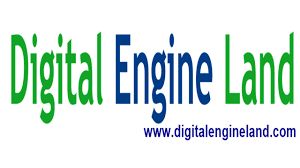In the realm of transportation, a profound evolution is underway, propelled by technological advancements and a growing imperative for sustainability. At the forefront of this transformation are electric cars and Keep eye on latest topics hyperloops, two innovations emblematic of the shifting landscape in how we move people and goods.

Electric cars have emerged as a promising alternative to traditional combustion engine vehicles, offering a cleaner, more efficient mode of transportation. With advancements in battery technology, electric vehicles (EVs) now boast longer ranges and faster charging times, addressing key concerns that once hindered their widespread adoption. Moreover, initiatives to expand charging infrastructure and incentives for consumers further bolster the appeal of EVs, signaling a transition towards a more electrified automotive future.
Simultaneously, hyperloop technology promises to revolutionize long-distance travel with its high-speed, low-friction transportation system. Conceived by entrepreneur Elon Musk and further developed by companies like Virgin Hyperloop, this concept involves propelling pods through vacuum-sealed tubes at near-supersonic speeds, offering the potential for unprecedented efficiency and convenience in intercity transit. By minimizing air resistance and utilizing magnetic levitation, hyperloops could drastically reduce travel times between major cities, effectively shrinking distances and reshaping regional economies.
However, despite their promise, both electric cars and hyperloops face significant challenges on the path to widespread adoption. For electric cars, concerns persist regarding range anxiety, charging infrastructure, and the environmental impact of battery production and disposal. Addressing these issues will require continued investment in research and development, as well as collaboration between governments, automakers, and energy providers to create a robust ecosystem supportive of electric mobility.
Similarly, hyperloop technology faces hurdles related to feasibility, regulatory approval, and cost. While successful test tracks and feasibility studies have demonstrated the potential viability of hyperloops, the transition from concept to commercial deployment remains complex. Regulatory frameworks must evolve to accommodate this novel mode of transportation, ensuring safety standards are met and public trust is maintained. Moreover, the substantial upfront investment required for hyperloop infrastructure necessitates strategic partnerships and innovative financing models to realize its full potential.
Despite these challenges, the future of transportation appears poised for transformation, driven by the convergence of technological innovation and societal demands for sustainability and efficiency. Electric cars and hyperloops represent just a glimpse of what lies ahead, with continued advancements in autonomous vehicles, aerial mobility, and alternative fuels reshaping the way we conceive of mobility in the 21st century. As we navigate this transition, collaboration, innovation, and a commitment to sustainability will be paramount in shaping a transportation landscape that is not only efficient and accessible but also environmentally responsible.




